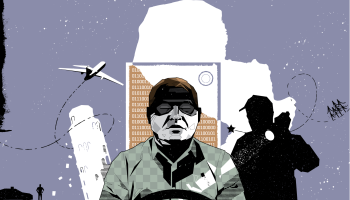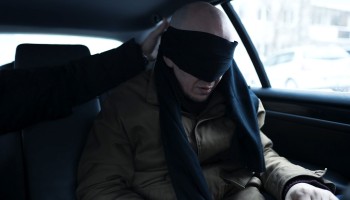The indictment stems from 2010, when the mastermind of the group, Ivan Pavlovic Iker, was charged with drug trafficking along with four of his alleged associates - Velimir Krivokapic, Rados Zecevic, Radoje Radulovic and Branislav Colevic.
Pavlovic received ten years in prison for drug trafficking and counterfeiting identification documents. Three of his associates were sentenced to prison terms on drug trafficking charges only - Krivokapic received eight years, and Zecevic and Radulovic four years each.
The sentences can be appealed.
The fifth suspect, Branislav Colevic, was freed from all charges due to lack of evidence.
Additional charges of organizing a criminal group and illegal possesion of weapons against some of the defendants were thrown out because the statute of limitation had expired on the crimes.
Pavlovic was arrested on his way to neighboring Montenegro in 2009 while attempting to escape Serbian authorities. The same day, authorities arrested Zecevic and Colevic. Krivokapic was arrested in Montenegro in 2001.
During 2008 and 2009, the group would ship cocaine from South America to western European countries.
Journalists from the Serbian Crime and Corruption Reporting Network (KRIK) reviewed the indictment – which includes details on several drug trafficking operations which resulted in police seizing nearly 70 kg of cocaine in total.
In August 2008, the group was stopped from trafficking 24 kilograms of cocaine to customers in the Netherlands. The drugs had reached Belgium when Dutch authorities arrested an associate of Pavlovic. KRIK reports the seized cocaine was worth nearly €1.5 million (more than US$ 1.64 million).
Belgian police seized another 11 kg of cocaine trafficked by the group only a month later.
By the end of the year, Belgian and Italian police cracked down on more of Pavlovic's associates – who were arrested when they were caught red-handed during drug transfers. 20 kg of cocaine were seized in Belgium, while another 12 was seized in Italy. KRIK reports that Italian authorities estimated the value of the cocaine seized in Italy to be approximately six million Euros (more than US$ 6.5 million).
Pavlovic, a professional seafarer, would orgnize the drug trafficking operations – he would have Latin American sailors pick up the cocaine, hide it on ships, and transport it to Europe. He would also - either personally or through Velimir Krivokapic – continuously maintain contact with commercial sailors over the phone in order to steadily follow developments regarding the trips.
Rados Zecevic was in charge of the profits. He would receive the money from cocaine sales in Western Europe - which would reach Belgrade in small cash notes. Following Pavlovic's instructions, he would then convert them to larger demonination notes. He also rented an apartment to Radulovic where the group kept weapons and mobile phones.
At some point, Radulovic contacted Colevic and had him come to Belgrade from Podgorica to take over his role – securing both Pavlovic personally and the apartment where the weapons and phones were kept. In his defense, Colevic told the court that he was not aware of the drug trafficking operations. He also said he would not answer the mobile phones in the apartment when they rang occasionally – he would only tell Pavlovic that someone called.






